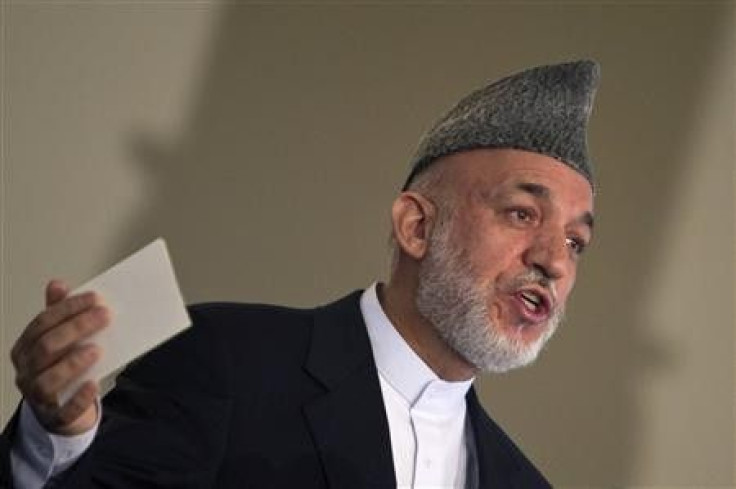Why a stable Afghan government matters

President Barack Obama last night told the American people that he would begin his promised troop withdrawal in Afghanistan.
The plan is to send 10,000 troops home by the end of 2011 and another 20,000 by September 2012. Seen as a compromise between politicians who want a faster drawdown and the military and neo-conservatives who want to keep a large force in the country, the President's actions drew criticism from both sides.
U.S. Rep. Randy Hultgren, R-Illinois, said that the precipitous withdrawal - faster than was advised by our military commanders - threatens to undermine the progress we have made there.
Hultgren's comment reveals an important issue behind the maneuver. The biggest question surrounding the troop withdrawal is over how well Afghanistan can support itself after the United States leaves. Will the Afghan government and security forces be able to keep the country stable?
According to Council on Foreign Relations' Stephen Biddle, there is a fear that Afghanistan could revert to 1990s-style anarchy.
This could lead to a situation that could hurt us, Biddle said.
The anarchic state is the same one that led to the rise of Osama bin Laden's Al Qaeda after Afghanistan's war with the Soviet Union. But more worrisome to Biddle is that an unstable Afghanistan could destabilize neighboring Pakistan, which is a nuclear state.
Instability in Afghanistan after US and NATO forces leave could put pressure on Pakistan's already unsound western border. If that happens, there is potential that we end up with a scenario in which loose nukes could end up in terrorists' hands, according to Biddle.
Biddle, who is a Roger Hertog Senior Fellow for Defense Policy, believes that Pakistan presents unique challenges to fighting terrorism, and that the United States must use a hand-tailored counter-insurgency strategy for the country. Unlike other terrorists hot-spots such as Somalia and Yemen where espionage, CIA operations and occasional drone strikes can successfully suppress terrorists, Pakistan requires a heavy hand.
The worst case is a Pakistan state collapse, Biddle told reporters Thursday.
The border between Afghanistan and Pakistan has long been a harbor for militants. Osama bin Laden and new Al Qaeda head Ayman al-Zawahiri were long thought to be hiding in the region.
Afghanistan, which has been plagued recently by anti-government insurgents, is relatively free from Al Qaeda, the terrorist group that once ran amok in the country. According to the CFR, there are probably less than two hundred members of Al Qaeda living in Afghanistan. There are significantly more in places like Yemen, Somalia and Djibouti.
But Pakistan is thought to be double-dealing with the United States, taking its aid money and supporting terrorists at the same time. And Pakistan's nuclear arms are more than troublesome. They move the nation from supporting what Biddle calls ordinary terrorism to mass destruction terrorism.
Luckily, the question of Afghanistan's stability will not be put to the test for some time. The 2012 troop withdrawal will only involve the surge force recently added by President Obama. The full force of US troops won't come home until 2014 at the earliest, but will probably be there for longer than that.
© Copyright IBTimes 2024. All rights reserved.











